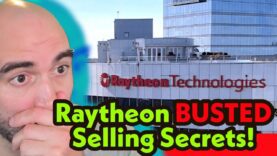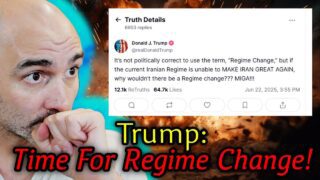Raytheon BUSTED Selling US Secrets to Russia, China, Iran!
Video Summary
Raton’s $200 million fine for exporting defense tech to China, Russia, and Iran, among others, has been met with a whisper in the media. The settlement covers 750 violations of the Arms Control Export Act and International Arms Traffic Regulations (ITAR). One of the reasons Raton got off with a relatively light punishment is that they voluntarily disclosed the violations, and the company has a history of being profitable.
But what about the company’s compliance program? It seems that Raton’s employees got a little too comfortable and forgot to follow the rules. They traveled to countries with classified and controlled technical data from aircraft and weapons, including the F-22 and E-3 planes. This raises questions about how Raton acquired and handled this sensitive information.
It gets even murkier when you realize that Raton acquired Rockwell Collins, a company that was in a precarious financial situation. Rockwell Collins may have been compromised by foreign intelligence, and Raton didn’t do enough to prevent the sharing of sensitive information. But, in a recent case, an Raton employee traveled to Moscow, Russia, with an RTX-issued laptop containing protected technical data. This is not a one-off mistake; the employee made multiple trips, accessing the RTX network to inspect the laptop.
This raises serious concerns about the integrity of Raton’s employees and the company’s ability to keep sensitive information secure. It’s no wonder that the US government is no longer doing business with Raton, at least, not openly. But, has Raton been held accountable? The fine is a mere 0.1% of the company’s market capitalization, equivalent to a light speeding ticket. For the average American, this would be like receiving a $240 fine for selling the country’s secrets. It’s like being allowed to make a mistake and yet still coming out with a tidy profit.
Is it any wonder that Raton’s stock has soared, leaving investors wondering if they can really trust the company? As I see it, it’s a vicious cycle of complacency and profit, where companies like Raton get away with playing both sides of the game. So, what’s the takeaway? It’s not just about the defense industrial complex; it’s about the corrupting influence of power and the price we pay for playing with sensitive information.























